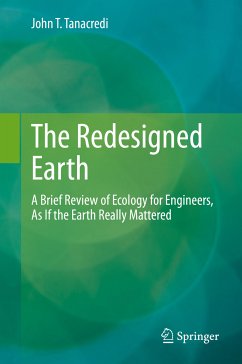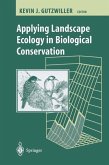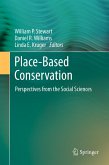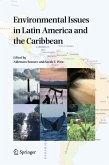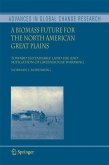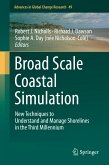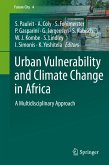The Redesigned Earth (eBook, PDF)
A Brief Review of Ecology for Engineers, As If the Earth Really Mattered


Alle Infos zum eBook verschenken

The Redesigned Earth (eBook, PDF)
A Brief Review of Ecology for Engineers, As If the Earth Really Mattered
- Format: PDF
- Merkliste
- Auf die Merkliste
- Bewerten Bewerten
- Teilen
- Produkt teilen
- Produkterinnerung
- Produkterinnerung

Hier können Sie sich einloggen

Bitte loggen Sie sich zunächst in Ihr Kundenkonto ein oder registrieren Sie sich bei bücher.de, um das eBook-Abo tolino select nutzen zu können.
This book provides insight into the basic aspects of ecology that impact or are affected by engineering practices. Ecological principals are described and discussed through the lens of the influences that built structures have on the Earth's biological, geological, and chemical systems. The text goes on to elucidate the engineering influences that have or will influence the face of the Earth. These influences redesign the Earth, either by destroying natural systems and replacing them with highly subsidized systems or by attempting to restore highly disturbed or contaminated systems with the basic natural systems that were originally present.…mehr
- Geräte: PC
- ohne Kopierschutz
- eBook Hilfe
- Größe: 13.37MB
![Applying Landscape Ecology in Biological Conservation (eBook, PDF) Applying Landscape Ecology in Biological Conservation (eBook, PDF)]() Applying Landscape Ecology in Biological Conservation (eBook, PDF)73,95 €
Applying Landscape Ecology in Biological Conservation (eBook, PDF)73,95 €![Place-Based Conservation (eBook, PDF) Place-Based Conservation (eBook, PDF)]() Place-Based Conservation (eBook, PDF)113,95 €
Place-Based Conservation (eBook, PDF)113,95 €![Environmental Issues in Latin America and the Caribbean (eBook, PDF) Environmental Issues in Latin America and the Caribbean (eBook, PDF)]() Environmental Issues in Latin America and the Caribbean (eBook, PDF)73,95 €
Environmental Issues in Latin America and the Caribbean (eBook, PDF)73,95 €![Quantifying Environmental Impact Assessments Using Fuzzy Logic (eBook, PDF) Quantifying Environmental Impact Assessments Using Fuzzy Logic (eBook, PDF)]() Richard B. ShepardQuantifying Environmental Impact Assessments Using Fuzzy Logic (eBook, PDF)73,95 €
Richard B. ShepardQuantifying Environmental Impact Assessments Using Fuzzy Logic (eBook, PDF)73,95 €![A Biomass Future for the North American Great Plains (eBook, PDF) A Biomass Future for the North American Great Plains (eBook, PDF)]() Norman J. RosenbergA Biomass Future for the North American Great Plains (eBook, PDF)73,95 €
Norman J. RosenbergA Biomass Future for the North American Great Plains (eBook, PDF)73,95 €![Broad Scale Coastal Simulation (eBook, PDF) Broad Scale Coastal Simulation (eBook, PDF)]() Broad Scale Coastal Simulation (eBook, PDF)73,95 €
Broad Scale Coastal Simulation (eBook, PDF)73,95 €![Urban Vulnerability and Climate Change in Africa (eBook, PDF) Urban Vulnerability and Climate Change in Africa (eBook, PDF)]() Urban Vulnerability and Climate Change in Africa (eBook, PDF)113,95 €
Urban Vulnerability and Climate Change in Africa (eBook, PDF)113,95 €-
-
-
Dieser Download kann aus rechtlichen Gründen nur mit Rechnungsadresse in A, B, BG, CY, CZ, D, DK, EW, E, FIN, F, GR, HR, H, IRL, I, LT, L, LR, M, NL, PL, P, R, S, SLO, SK ausgeliefert werden.
- Produktdetails
- Verlag: Springer International Publishing
- Seitenzahl: 259
- Erscheinungstermin: 12. Dezember 2019
- Englisch
- ISBN-13: 9783030312374
- Artikelnr.: 58414667
- Verlag: Springer International Publishing
- Seitenzahl: 259
- Erscheinungstermin: 12. Dezember 2019
- Englisch
- ISBN-13: 9783030312374
- Artikelnr.: 58414667
- Herstellerkennzeichnung Die Herstellerinformationen sind derzeit nicht verfügbar.
